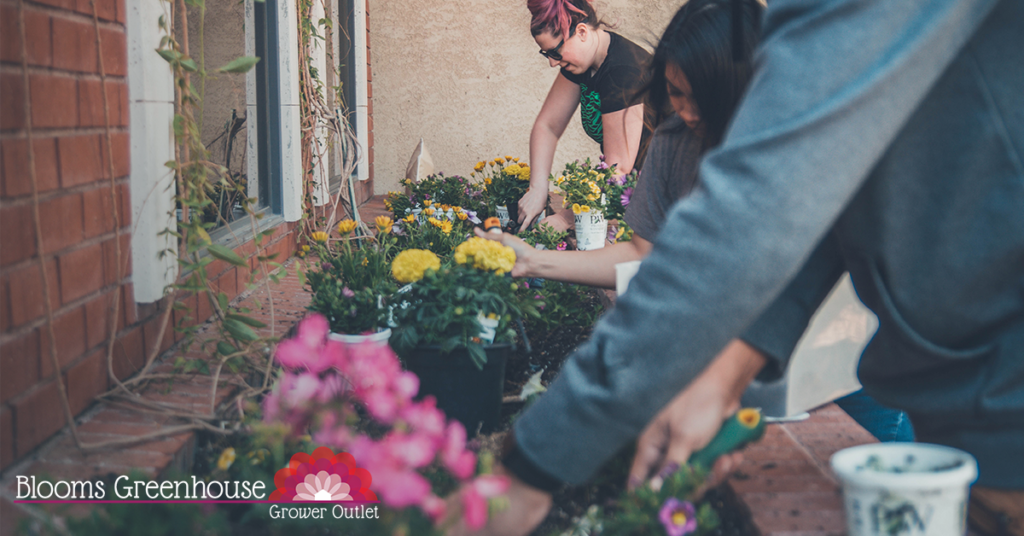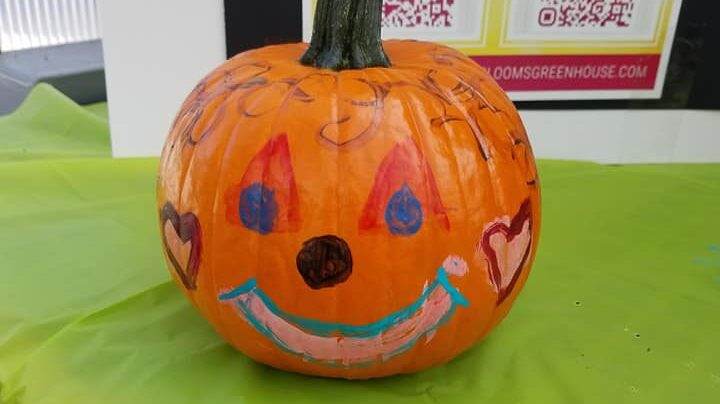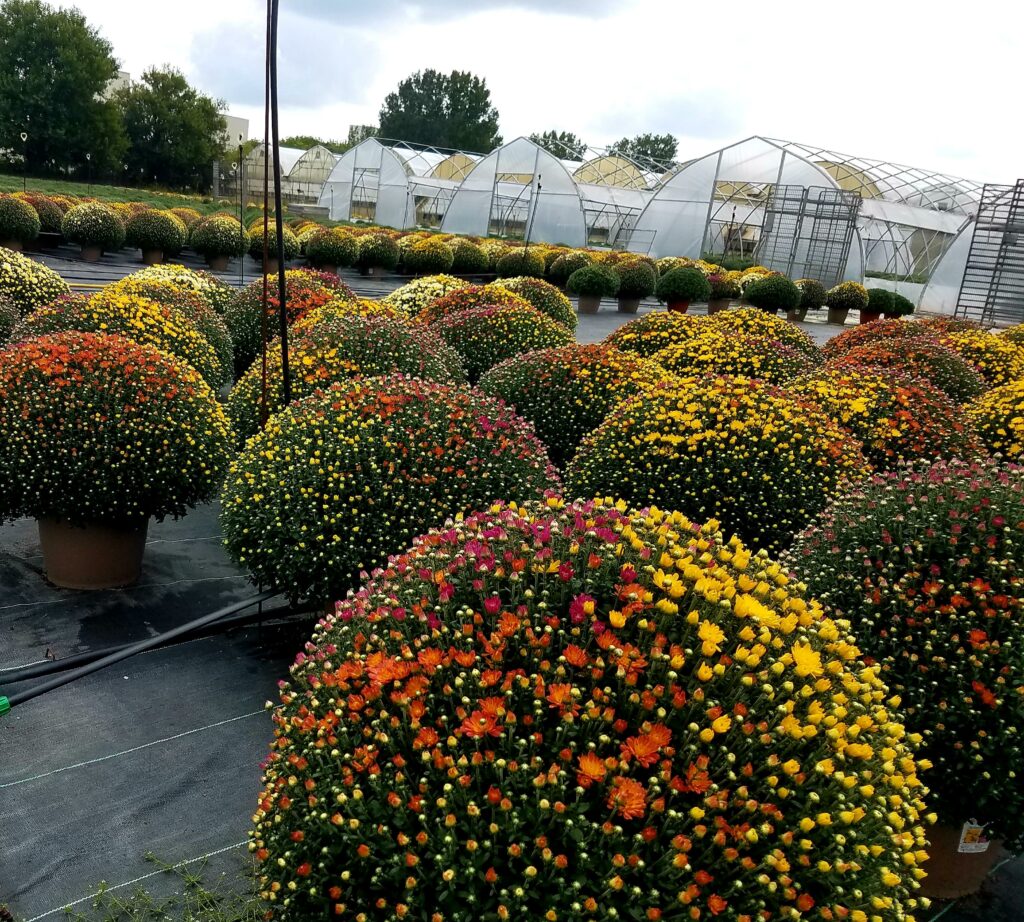The summer months can be a tricky time for devoted plant parents. While most people suffer in front of the AC in the hot weather, plants can also be at risk of danger. Houseplants can suffer from sunburn, fungi diseases, bugs, worms, the list goes on. But not to worry, Blooms Greenhouse Grower Outlet has some expert tips to share to make sure that your plant babies blossom during the summer months and have renewed energy into the fall season.
According to Blooms Greenhouse, there are a lot of ways to take care of your plants in the dead of summer. Your outdoor plants and gardens in particular. Bloom’s suggests different types of irrigation like soaker hoses, sprinkler systems, and drip irrigation. These different types of watering will give your outdoor plants the nutrients they need. Blooms Greenhouse also suggests watering your plants less often, but thoroughly, to make sure the deep roots get the water they need. Aiming for the base of your plants will make sure that the water gets to where it needs to be.
Watering during the morning and night will ensure that the water doesn’t evaporate, and moisture will benefit the plants longer. If you are active and not at home, investing in some plants that are drought tolerant to your yard might be beneficial. Sage, Yarrow, Verbena, and Lantana are just a few of the examples of plants that can take the heat. You can speak with employees at your local Blooms Greenhouse for more ideas on drought tolerant plants.
While watering is one part of the equation to taking care of your plants in the summertime, making sure they are healthy is equally important. Fungi and bugs are more active in the summertime, but knowing how to take care of them will make sure your plants grow.
Powdery Mildew is an easily recognized fungal disease that is common on plants across the United States. It often occurs in plants that have a low soil moisture and high humidity in the air. When the leaves are severely covered in the powdery mildew, it might turn brown and fall off. This plant disease can be transmitted by the wind, bugs, and water. When your plants are affected, make sure to relocate the plant to a sunny area and prune away the diseased leaves. You can also use a milk combination of 60% water and 40% milk to spray on the leaves to use as a preventative measure.

Leaf Fungus is another fungal disease that can affect plants in the summertime. This disease commonly shows up as brown, black, and tan spots on the leaves. As a result, the leaves might turn yellow and fall off. In order to help prevent the premature death of your plants, make sure to never over water your plants, cut off the affected leaves, and avoid over-fertilizing. You can use a fungicide if needed.

Aphids are tiny colorful bugs that love to nibble on plants of all kinds. Since they are extremely small, you might not notice the bugs directly, but the damage they cause is easier to spot. If your plants are misshapen, yellowing, or have a sticky substance on the leaves or stems, chances are there is a colony of aphids living on your plants. To deal with these pesky pests, try spraying your plant with cold water. You can also dust some baking flour over the leaves as well.

Tomato Worms, or more commonly known as Tomato Hornworms, are a common pest to your tomato plants. These bugs look similar to caterpillars, but they do not redeem themselves by turning into butterflies for your garden. They are moths, and before they start cocooning, they enjoy feasting on your tomatoes, peppers, eggplants, and potatoes. To make sure you have your vegetables for the summer, sometimes the best option is to simply watch your garden and pick them out when you see them. This way you don’t have to use pesticides on your produce. Tilling the soil in the spring is shown to reduce the number of larvae as well. Planting basil or marigolds near your plants will also keep these crawlers away.

There are some other issues that can plague your plant other than illness and bugs and there are a few extra steps you can take to make sure your sunflowers and bean sprouts are growing to their full potential.
Over watering your plants does more harm than good. It can turn the leaves brown, causing them to fall off and die, or simply cause your plant to not grow at all. Make sure you take note and see how much sunlight and water your plant actually needs before drowning them. Making sure that your pots have working drainage as well in order to filter out the water that isn’t helpful. If you have already overwatered your plant; trim off the dying plants, clear off some space for the roots to get some oxygen, and then use some fungicide.
Boiling your roots. This tip might seem a little counterproductive, but using hot water can be helpful towards the plants you hate and the ones who ruin your yard! If you find your garden is overrun with weeds, using boiling water can help kill them. Just make sure to not pour boiling water directly on the plants you love. When using hot water to help your plants, keep the temperature between 120 and 122 degrees, and make sure to only pour the water on the roots. Overall, using hot water is not bad for your plants. It causes more damage to your plants to use freezing water. Anything around and above room temperature is the best for your plants.
We also chatted with some devoted plant parents in the NWI region to see what they do to help nourish their plants.
Gabby Born, of Dyer, is a certified plant lover. Some of her favorite plants include her Alocasia Frydek, a large houseplant with velvet-like leaves and striking white veins. Born has purchased the majority of her plants from Alsip Home & Nursery in St. John, a partner of Blooms Greenhouse Grower Outlet. Some of the things she does to take care of her plants include fertilizing them during the summer months to improve their growth. While Born has had no past issues with fungi, she often encounters fungus gnats.

“They’re bigger than fruit flies and really annoying,” she says, “but I’ve bought some mosquito bits and poured them over the soil and that really helps”
Another plant lover is Beth Ireland of Portage. To help take care of her plants she incorporates her used coffee grounds and mixes them in with the soil.
“I also make my own pesticide with essential oils.” Ireland explains “I mix together Neem Oil with several drops of peppermint and arborvitae essential oils, this really helps keep the insects away!”
Taking care of plants can be a rewarding challenge, but with the tools above you can take care of them when the weather gets hot. If you run into more issues or maybe just want some more advice, (or even if you are in the market for a few more plant babies) check out Blooms Greenhouse Grower Outlet at 719 Hupp Road, La Porte, IN 46350.




